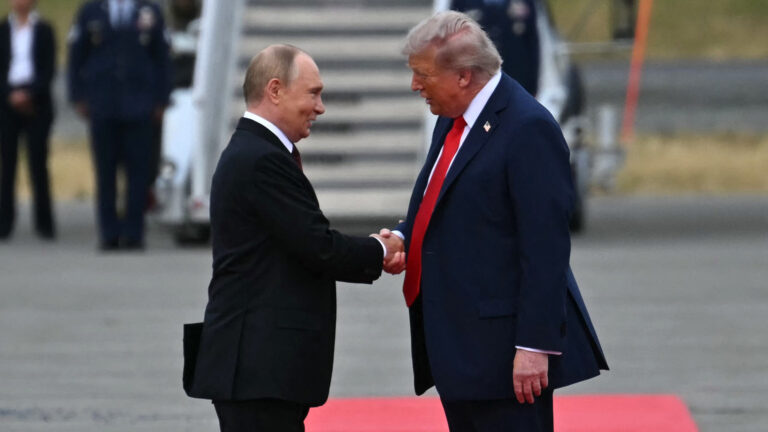The following is the English translation of a press release kindly provided to us by the Center for Fundamental Rights.
The Ukrainian political and social system gives the mere appearance of statehood—and even that is only so thanks to continuous Western funding. Evidently, the Russian invasion, of which Ukraine is a victim, contributes significantly to this. However, Moscow’s aggression is not the root cause of the crisis of Ukrainian statehood, it is ‘only’ a catalyst. Among other things, the corruption that has long pervaded the entire public administration and private sector is not simply a harmful by-product of Ukrainian public life, but its central organizing principle.
Moreover, the basic conditions for successful anti-corruption measures are lacking, according to research by the Center for Fundamental Rights based on Ukrainian sources and reports from international organizations, liberal NGOs, the European Union, and the United States. Based on all this, it can be stated that Ukraine’s proposed accelerated EU accession process, which is strongly advocated by Brussels and Péter Magyar’s TISZA Party, is merely a manoeuvre serving ideological and political goals, as Ukraine does not even meet the EU’s preliminary accession requirements. The hundreds of billions of euros transferred to Kyiv are intended to increase the public debt of EU countries, with the barely concealed intention of bringing the dream of a ‘United States of Europe’ closer to reality.
The Ukrainian social and political system bears only traces of statehood: it can hardly be described as a functioning state. The country’s institutions would be unable to function without Western support. All this is confirmed by the sources—Ukrainian intel, reports from Western institutions and so-called international civil organizations—that are most vocal in calling for Ukraine’s accession to the EU. Brussels and its member state allies want to admit an unviable, corrupt Ukraine into the European Union, which is sharply at odds with the Hungarian sovereignist position.
‘The Ukrainian social and political system bears only traces of statehood’
This study explores in detail the areas where corruption and institutional weakness are most apparent. In order to present the full—and devastating—picture, we have carried out:
- a presentation of the operational logic and case studies of corruption;
- an examination of the integrity and functioning of the judiciary;
- an analysis of the structure and deficiencies of public administration;
- an assessment of the state of public security and rule of law;
- a review of the enforcement of freedom of opinion and conscience.
The areas covered by the investigation not only indicate the significance of individual cases of corruption, but also collectively support the conclusion that Ukrainian statehood in its current form cannot meet the European Union’s accession criteria. It is also clear that billions of EU and US taxpayers’ money are being spent on maintaining structures that are incapable of eliminating systemic abuses and weak governance.
It is true, of course, that Ukraine is a victim of Russian aggression and that Kyiv cannot be blamed for the invasion. However, the destruction brought on by the war has objectively only exacerbated the problems of corruption, deficiencies in the rule of law, and institutional weaknesses that have existed for decades. The invasion is therefore not the cause but the catalyst of a crisis that the Ukrainian state cannot resolve on its own.
Therefore, no progress has been made in curbing corruption in Ukraine—to the contrary, the war and political centralization have rather reinforced existing structures. The state of being at war further strengthens the mechanisms of corruption. Thus, we can conclude not only that none of the Copenhagen criteria have been met in Ukraine, but also that it will not be able to meet them in the foreseeable future either.
This does not mean that there is no need for cooperation with a peaceful Ukraine. Once the armed conflict has been resolved, strategic economic cooperation will become a reality.
Hungarian–Ukrainian relations have been particularly strained by tragic and shocking events such as the murder of József Sebestyén and the bombing of the Druzhba oil pipeline. These incidents have further deepened the mistrust between the two countries and highlight the political and security risks that Ukraine’s integration into the EU would entail.
In light of all this, Hungary’s position is that of consistent warning that Ukraine’s accession to the EU would not only entail political and economic risks, but would also fundamentally weaken the integrity of the Union. Nevertheless, Brussels is pushing for enlargement at all costs, ignoring the real problems revealed in the sources they themselves often cite. This strategy can only serve one purpose: the deliberate indebtedness of EU member states and the implementation of a common credit policy, which, according to the intentions of the Brussels elite, would create the conditions for the establishment of a United States of Europe. This line is represented not only by Western political and bureaucratic circles, but also by their Hungarian allies: Péter Magyar and the TISZA Party both support Ukraine’s early accession to the EU, openly defying Hungarian and European interests, as well as common sense.
Related articles:







